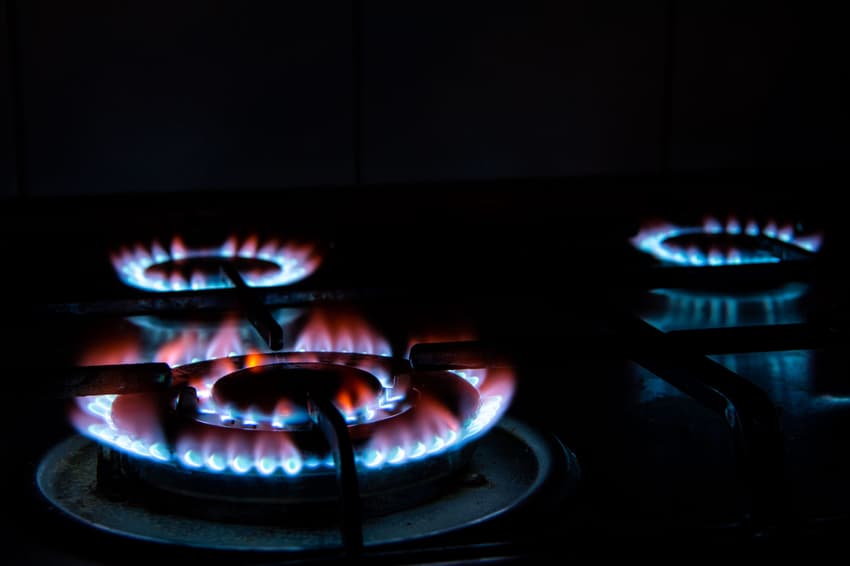Germany says gas reserves filled to 95 percent sooner than expected

Germany on Friday said it had filled its gas reserves to 95 percent of capacity faster than expected as it prepares for a winter deprived of Russian energy supplies.
Europe's largest economy had been heavily dependent on Russian gas and has raced to bolster its reserves after deliveries from Russia halted following Moscow's invasion of Ukraine.
"Storage levels today surpassed an average level of 95 percent," the economy ministry said in a statement.
"That shows that regulation is having an effect and supply is strengthened for the coming winter."
Berlin in July adopted a raft of measures so that gas stocks would reach 95 percent of capacity by November. Economy Minister Robert Habeck called Friday's report an "important milestone".
READ ALSO: France begins sending gas to Germany in ‘act of EU solidarity’
He said government measures had managed "to regulate a market that was largely unregulated in the past decades so that we could fill the storage facilities faster than expected despite the halt in deliveries via the Nord Stream 1" pipeline from Russia.
Habeck's ministry said that in October 2021, months before the current crisis began, storage was at an average of 72 percent versus 95.14 percent today.
The government said energy-saving measures in recent weeks and massive purchases of gas from other suppliers had led to significant progress.
It has spent 1.50 billion euros ($1.46 billion) to buy liquefied natural gas, with Qatar and the United States being major suppliers, and five new LNG terminals are planned to import it by sea.
Meanwhile France said this week it had started sending natural gas to Germany as part of its pledge to ensure EU energy solidarity in the face of Russian-imposed shortages in response to Western sanctions.
Berlin has also introduced measures allowing more coal-based power and reducing energy consumption in public buildings.
READ ALSO: EXPLAINED: When should I turn on my heating in Germany this year?
"Now we need to continue to strengthen supply for the coming winter," Habeck said on Friday.
The German government warned this week that the country would sink into recession next year as the economy battles skyrocketing energy costs following Russia's gas shutdown.
Unveiling the government's latest forecasts of 0.4 percent economic contraction and seven percent inflation for 2023, Habeck painted a dark picture of a "serious energy crisis".
Comments
See Also
Europe's largest economy had been heavily dependent on Russian gas and has raced to bolster its reserves after deliveries from Russia halted following Moscow's invasion of Ukraine.
"Storage levels today surpassed an average level of 95 percent," the economy ministry said in a statement.
"That shows that regulation is having an effect and supply is strengthened for the coming winter."
Berlin in July adopted a raft of measures so that gas stocks would reach 95 percent of capacity by November. Economy Minister Robert Habeck called Friday's report an "important milestone".
READ ALSO: France begins sending gas to Germany in ‘act of EU solidarity’
He said government measures had managed "to regulate a market that was largely unregulated in the past decades so that we could fill the storage facilities faster than expected despite the halt in deliveries via the Nord Stream 1" pipeline from Russia.
Habeck's ministry said that in October 2021, months before the current crisis began, storage was at an average of 72 percent versus 95.14 percent today.
The government said energy-saving measures in recent weeks and massive purchases of gas from other suppliers had led to significant progress.
It has spent 1.50 billion euros ($1.46 billion) to buy liquefied natural gas, with Qatar and the United States being major suppliers, and five new LNG terminals are planned to import it by sea.
Meanwhile France said this week it had started sending natural gas to Germany as part of its pledge to ensure EU energy solidarity in the face of Russian-imposed shortages in response to Western sanctions.
Berlin has also introduced measures allowing more coal-based power and reducing energy consumption in public buildings.
READ ALSO: EXPLAINED: When should I turn on my heating in Germany this year?
"Now we need to continue to strengthen supply for the coming winter," Habeck said on Friday.
The German government warned this week that the country would sink into recession next year as the economy battles skyrocketing energy costs following Russia's gas shutdown.
Unveiling the government's latest forecasts of 0.4 percent economic contraction and seven percent inflation for 2023, Habeck painted a dark picture of a "serious energy crisis".
Join the conversation in our comments section below. Share your own views and experience and if you have a question or suggestion for our journalists then email us at [email protected].
Please keep comments civil, constructive and on topic – and make sure to read our terms of use before getting involved.
Please log in here to leave a comment.